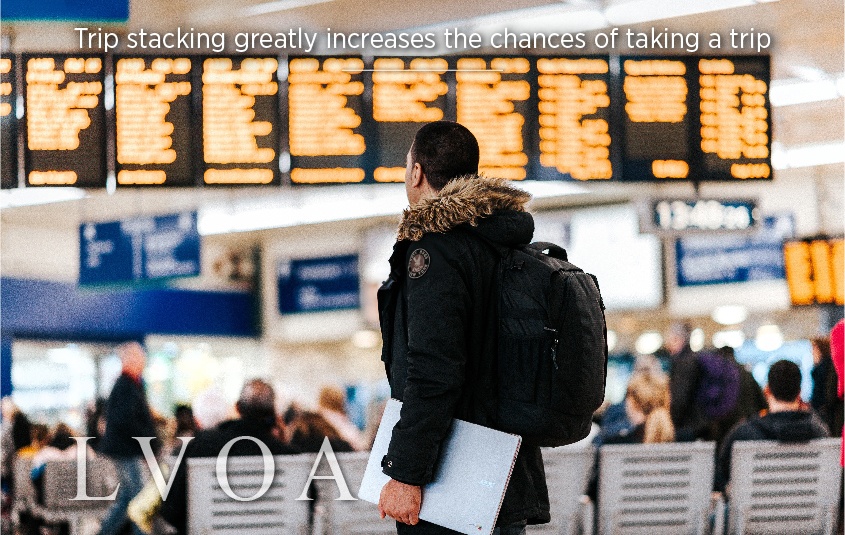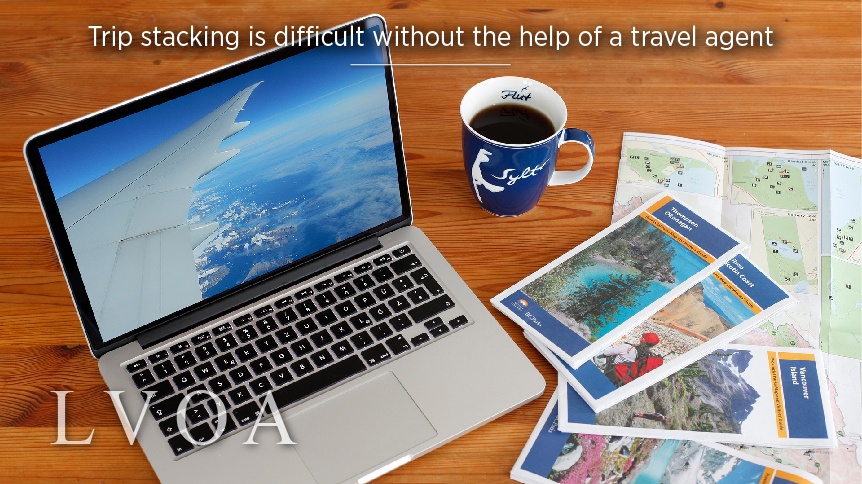Booking travel is complicated right now. Some places are opening up again, while others are locking down. Some countries have high vaccination rates and a majority fully vaccinated (or even third-shot-boostered!) population, whereas others are behind or are contending with strong anti-vax sentiment.
In some places, you may even be forgiven for thinking the pandemic is over, as masks are tossed to the curb and large crowded events resume. For others still, masks, temperature-taking, regular testing, and strict measures are still the norm. As proved by the emergence of the Omicron variant, things could change at any moment.
In this period of the pandemic, where things are ever-changing and responses of individual nations are so different, how do you plan a trip? Well, for the upcoming festive season, many have turned to the latest in Covid-era travel trends: trip stacking.
What is trip stacking?
Trip stacking is where eager travellers book two, or even three, separate trips that are flexible and refundable. The “Plan A” trip is the riskiest option, such as an international holiday. The “Plan B” trip is closer to home and likely a domestic travel destination. The idea is that if one trip falls through due to changing Covid-19 rules, or if case numbers suddenly go up at home or at the destination, or travellers wish to reconsider long-haul travel, then there is a backup. In essence, trip stacking greatly increases your likelihood of being able to take a trip.
Trip stacking started to pick up in the summer, when many Western countries were opening up and vaccine rollouts were full steam ahead. At the same time, new variants were emerging, which threw curve balls at places where Covid cases were previously low or on the decline. This uncertainty, combined with the urge for “revenge travel,” led travellers to play smart and consider multiple trip options at a time.
Now, in light of the festive period – the peak travel season – trip stacking has boomed as a trend. Those who were locked down for the holidays in 2020 want to make up for lost time; taking a well-deserved trip away for the winter break, or reuniting with friends and family who live far away. Yet, the risk of last-minute cancellation still looms. Trip stacking is the solution.
What does trip stacking mean for the travel and hospitality sector?
To meet the current demands of the customer, cancellation policies within the travel and hospitality industries have remained flexible and refundable. After all, this was a sector greatly affected by the pandemic and flexibility bolsters much-needed consumer confidence.
However, the benefits of trip stacking for the travel industry are mixed. It’s a lucrative deal for travel agents, who are potentially getting double the business. As noted by Joshua Bush of agency Avenue Two Travel, clients usually rebook the trip that they cancel for a later date, or even stack it against another future option.
On the other hand, hotels, cruises and tour companies may be losing out. By reserving time or accommodation space, only to have customers cancel last-minute, these types of businesses lose the income from the booking as well as the opportunity to refill the space in time. Plus, if they’re booked up with trip stackers, more serious potential customers won’t be able to book. How can they gauge how serious the customer is: are they a Plan A or a Plan B? It’s all very risky.

There are also knock-on effects in terms of dynamic pricing. As observed by Tim Hentschel of HotelPlanner:
“Unlike making three or four dinner reservations and then deciding hours before where you want to go based on appetite or convenience, trip stacking will cause prices on airlines and hotels to go up for everyone. Unlike restaurants, hotels and airlines yield their prices up as occupancy levels increase.”
Travel and hospitality businesses will have to weigh up the pros and cons of flexible cancellation policies, possibly retracting them to deter trip stackers who may cancel. Then again, they desperately need the business and this is what customers need right now. What’s more, with where we are in the pandemic, anyone could cancel at any time for any number of unpredictable Covid-related reasons. So, what’s the difference between a trip stacker cancellation and any other pandemic-related cancellation?
Hentschel does emphasise that: “Travelers who ‘trip stack’ or arbitrage their travel options should remember the common courtesy of canceling all reservations and bookings as early as possible. This is the socially responsible thing to do.”
This also applies to travel agencies, who need to maintain relationships with suppliers.
“On our end, we are very transparent with our suppliers and with trip stacking even more so,” says Virtuoso travel advisor Tania Swasbrook. “We tell them exactly what we are doing and that there is a chance this may not go ahead. Every single one of our suppliers has been grateful for the transparency and understanding as to why this is happening.”
Refunds and financial responsibility
Of course, trip stacking is only a real option for wealthier travellers, who can afford to book multiple trips, as well as wait for refunds to come through once backup trips are cancelled. As trip stacking has become so popular, especially over the festive period, the travel and hospitality industry will likely be inundated with refund requests, which take time to resolve.
Furthermore, it’s not something that can easily be done alone. Trip stacking requires understanding the cancellation policies of each service used, terms and conditions, hidden fees, travel insurance fine print, as well as time taken chasing up refunds once a trip is cancelled. Truly, it’s only achievable with the help of a travel agency.
How long will trip stacking last?
Trip stacking has its benefits and drawbacks for both the consumer and the industry. There are certainly issues with logistics, finances and ethics. However, trip stacking is a significant solution that is allowing travel to pick up again; restoring consumer confidence and bringing back business for travel and hospitality. Though likely a temporary phenomenon, trip stacking will certainly continue into 2022 and surely will be a fixture until the word pandemic is perceived, accepted and replaced by endemic.







